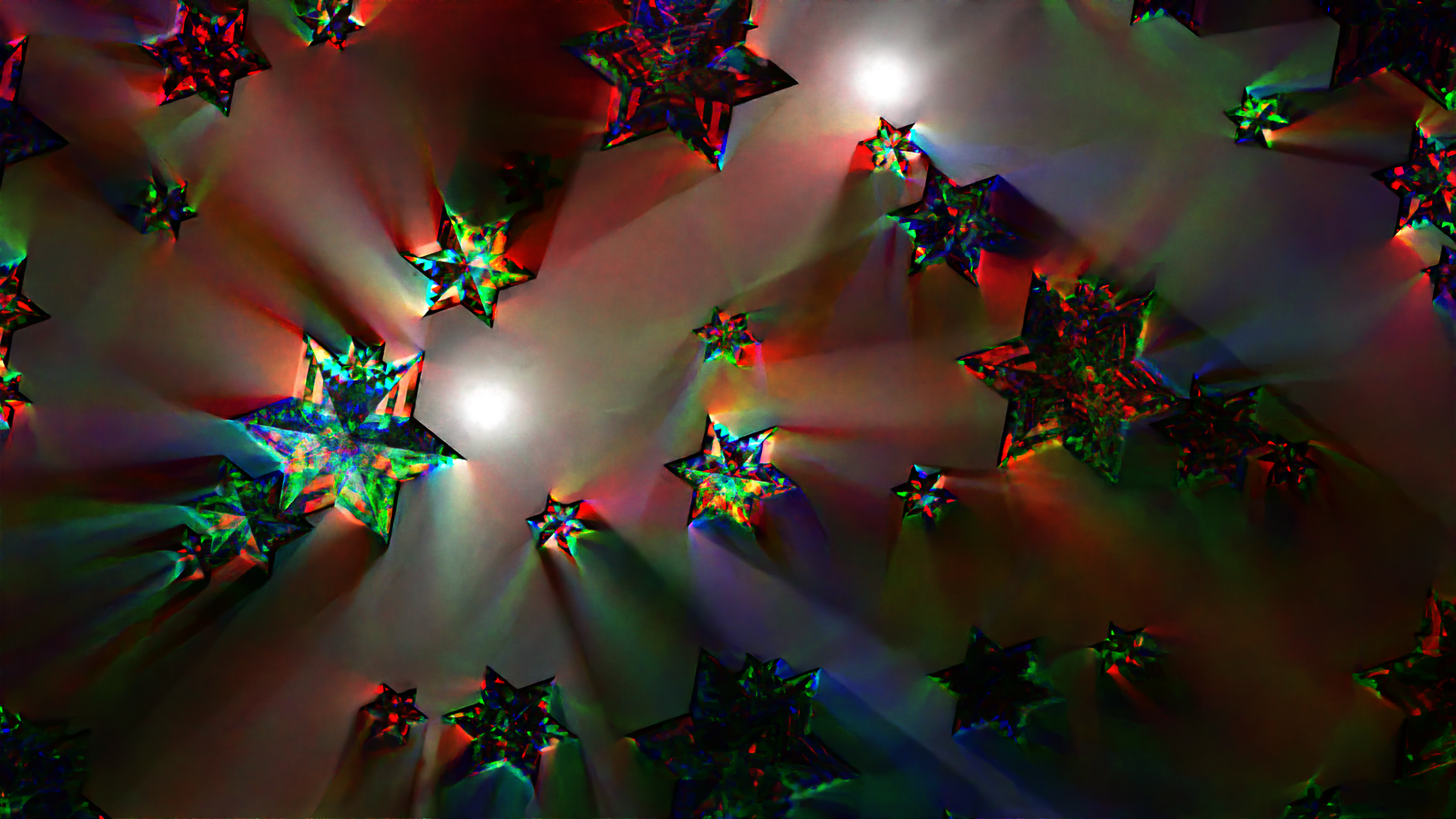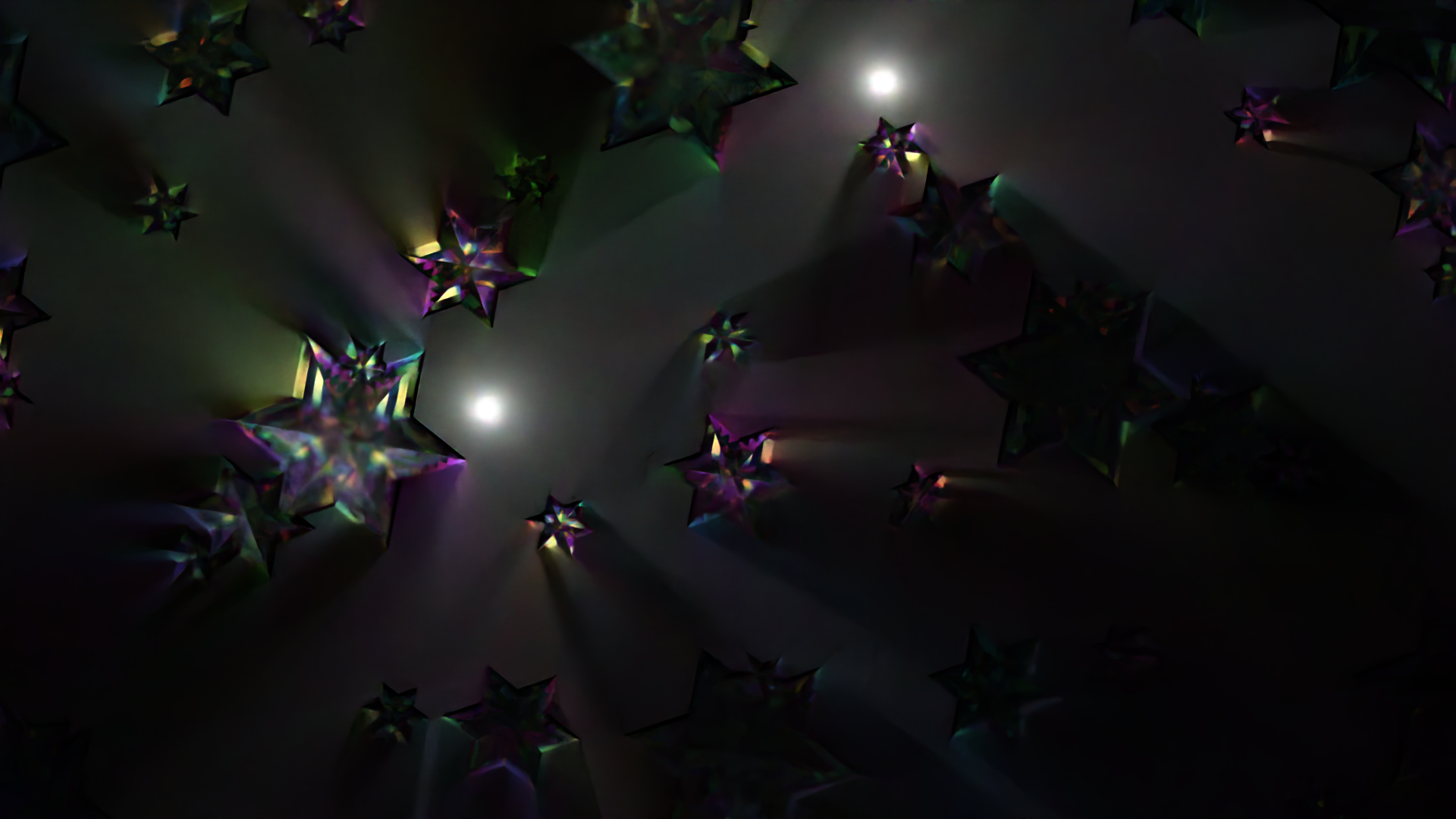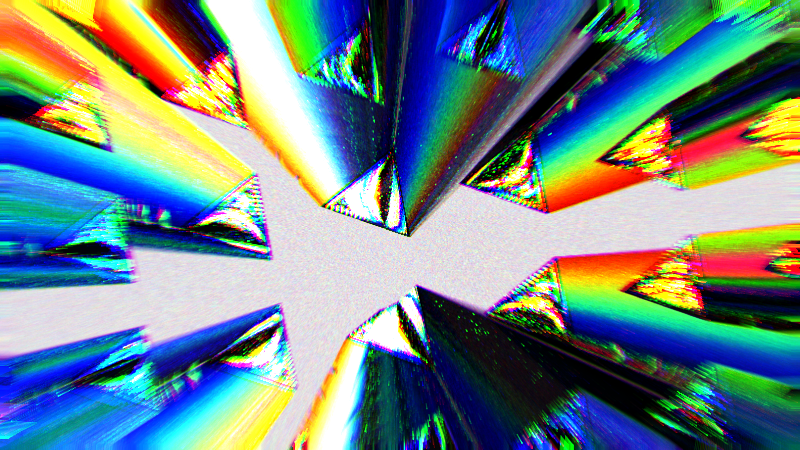NamelessFractals
Here I experiment with various rendering techniques!
Project maintained by NamelessCoding Hosted on GitHub Pages — Theme by mattgraham
2D Ray/Path Tracing
Implementation details:
Creating a 2D path/ray tracer isn’t very difficult, however to make it more interesting I decided to make it spectral. So the refraction index depends on the wavelength and later the hue. This created a really interesting dispersion effect, especially within the stars.
2D Path Tracing
When path tracing in the second dimension, you start off from the current pixel position, choose a random direction and you shoot the ray until it hits an object. In this case the objects were either refractive, or were emissive. If the ray hits an emissive object it stops at that point and the throughput * light emission is added to the final color, overall very simple.One issue I’ve found that I’ve yet to figure out is that whenever I create a 2D prism, I never manage to get good dispersion, the way I would’ve expected it. There is a way to make it work and we’ll talk about that after this paragraph is over. This method does however still generate beautiful images as seen below:


One big issue with this way of generating an image is that the noise can become a big hurdle to overcome, there are some denoisers out there, ones which I prefer being by Intel and Nvidia.
2D Ray Tracing
Now what I mean by 2D “Ray Tracing” as opposed to 2D “Path Tracing” is that in this version I directly shoot the ray from the pixel position towards the light source. The same rules still apply, if it hits a refractive object, the light refracts, if it hits a light source, we add to the final color. What this version differentiates from “Path Tracing” is that there is no noise and proper dispersion is more possible. Also I’m still doing the different refraction values per wavelength!


Conclusion
Both methods yield awesome results, but in the end it really depends on you to chose which one you prefer. One thing for sure is that I feel like 2D games can really be pushed forward with 2D ray/path tracing!